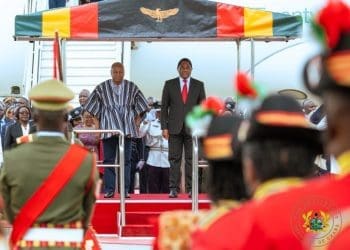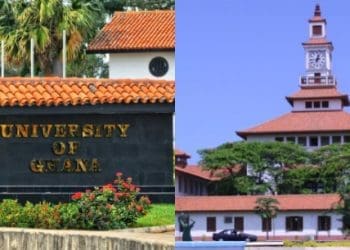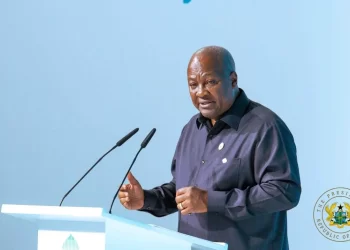The dramatic removal of Chief Justice Gertrude Araba Esaaba Sackey Torkornoo by President John Dramani Mahama has left many in shock, not merely because of the symbolism of a sitting Chief Justice being dismissed, but more so because of the reasons cited for her ouster.
According to the five-member committee that investigated her conduct, three main allegations formed the basis of her removal: unlawful expenditure of public funds, abuse of discretionary power, and interference in judicial appointments.
Yet a careful look at each of these grounds suggests that they are, at best, flimsy and, at worst, a dangerous precedent for undermining judicial independence in Ghana.
Unlawful expenditure of public funds: Was the CJ really at fault?
The committee held that the Chief Justice had caused the Judicial Service to pay for travel expenses for her husband and daughter during holiday trips abroad in 2023, including per diem allowances.
They branded this as an “avoidable and reckless dissipation of public funds.”
But was it really? A policy titled Overseas Travel for Official Business for Superior Court Judges, issued on January 5, 2019, makes clear provisions for the Chief Justice’s travel entitlements.
The policy explicitly states that:
The Chief Justice is entitled to undertake unlimited official travels with either his or her spouse or a person of choice, fully funded by the Judicial Service.
Where the Chief Justice is accompanied, the spouse or companion is to travel on the same class of ticket and receive half the per diem allowance granted to the Chief Justice.
By this provision, the Chief Justice acted fully within her rights. She did not personally create allowances or divert funds; she merely followed an established policy framework.
To label such action as unlawful expenditure is, therefore, misleading.
Even if one were to assume that the policy had been misapplied in this instance, the more proportionate remedy would have been a refund of the money and a formal reprimand, not outright removal from office.
This is consistent with how similar matters have been handled for other public officials.
Parliamentarians accused of receiving double salaries were asked to refund the money, not expelled from the legislature.
Members of the Executive who misused state funds were similarly ordered to refund.
Why, then, should the head of another arm of government face the harshest penalty for a comparable allegation?
Moreover, when the President travels abroad, his wife and even adult children often accompany him, with all expenses borne by the state.
None of them are public officials, yet such expenditure is justified under the broader umbrella of state protocol.
If this is acceptable for the Executive, why should the Judiciary be treated differently?
Abuse of discretionary power: A labour matter, not grounds for removal
Another charge against the Chief Justice was that she abused her discretionary power by mishandling the transfer of a Judicial Service staff member, Mr. Baiden.
The committee claimed this breached Article 296(a) and (b) of the Constitution.
But when stripped of legal jargon, this is simply an administrative or labour dispute.
The transfer of staff falls within the ordinary remit of administrative management.
If an employee feels unfairly treated, there are proper avenues for redress—the National Labour Commission (NLC) and, ultimately, the courts.
To elevate such a routine workplace grievance into grounds for removing the Chief Justice is both legally unsound and politically dangerous.
By this logic, every time a staff transfer is contested, the Chief Justice risks impeachment.
If President Mahama himself terminates appointments of civil and public servants without those decisions becoming grounds for his own removal, why should the Chief Justice be held to a different, harsher standard?
The argument collapses when viewed in light of precedent: civil service disputes belong to the domain of labour relations, not constitutional impeachment.
Interference in judicial appointments: A correctable error, not misbehaviour
The third and final reason cited for the Chief Justice’s removal was that she allegedly attempted to bypass the established procedure for nominating Justices of the Supreme Court, contrary to precedent set in the Ghana Bar Association case.
Yet, even here, the supposed offence was not that she had promoted unqualified persons or corrupted the process, but rather that she did not strictly follow the prescribed procedure. Importantly, no Justice had yet been promoted to the Supreme Court under her supposed irregular action.
At best, this was an administrative error that could have been corrected by asking her to follow due process.
To call this “misbehaviour” warranting removal is a gross overreach.
Administrative missteps, even if proven, should never be equated with constitutional misconduct unless they involve fraud, corruption, or gross abuse of power.
Dangerous precedent for judicial independence
The removal of Chief Justice Torkornoo on these weak grounds is not just about her.
It sets a dangerous precedent where the Judiciary, the very institution designed to check political power, can be destabilized by trivial or exaggerated allegations.
If “unlawful expenditure” can be stretched to include entitlements under existing policy, if “abuse of power” can be interpreted to mean staff transfers, and if “interference” can be made out of mere administrative shortcuts, then no Chief Justice is safe.
This risks eroding public confidence in the independence of the Judiciary and emboldening the Executive to intimidate judges into compliance.
Conclusion
Justice Gertrude Torkornoo’s removal has been painted as an act of accountability.
But accountability must be grounded in fairness, consistency, and proportionality.
None of the three reasons—unlawful expenditure, abuse of discretionary power, or interference in judicial appointments—rise to the level of misconduct that warrants removing the Chief Justice of Ghana.
The remedy in each case should have been correction, refund, or administrative direction—not impeachment.
By making removal the punishment of first resort, Ghana risks weakening the Judiciary and upsetting the balance of power that protects the nation’s democracy.













